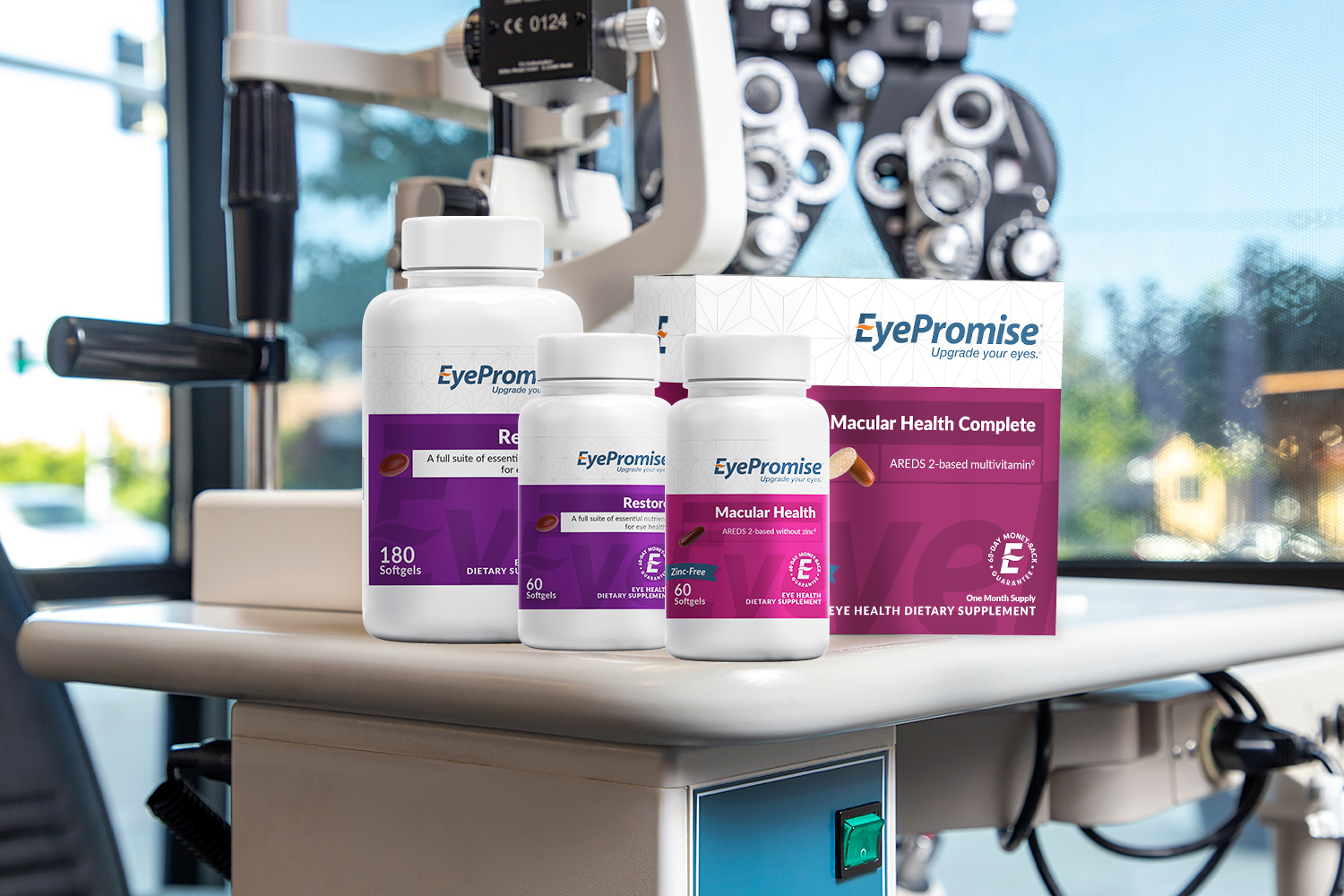Age-Related Eye Health Issues
Age-related eye health issues destroy central vision and are the leading cause of vision loss in Americans over 55. While there is no cure and the effects are irreversible, you can intervene and influence your patients' eye health outcomes.
 |
Improve visual acuity by 1½ lines on an eye chart |
 |
Improve contrast sensitivity |
 |
Improve foveal shape discrimination |
Using clinical research, EyePromise developed a line of eye health nutraceuticals designed to provide solutions for your at-risk patients to your advance-stage patients and everything in between. We’ve even created a zinc-free formulation in case you conduct genetic testing, your patient already takes a multi-vitamin, or your patient has been advised to avoid zinc.


-
Arnold C, Winter L, Fröhlich K, et al. Macular Xanthophylls and ω-3 Long-Chain Polyunsaturated Fatty Acids in Age-Related Macular Degeneration: A Randomized Trial. JAMA Ophthalmol. 2013;131(5):564–572. doi:10.1001/jamaophthalmol.2013.2851
Read the study! -
Christen, William G et al. “Dietary ω-3 fatty acid and fish intake and incident age-related macular degeneration in women.” Archives of ophthalmology (Chicago, Ill. : 1960) vol. 129,7 (2011): 921-9. doi:10.1001/archophthalmol.2011.34
Read the study! -
Richer SP, Stiles W, Graham-Hoffman K, Levin M, Ruskin D, Wrobel J, Park DW, Thomas C. Randomized, double-blind, placebo-controlled study of zeaxanthin and visual function in patients with atrophic age-related macular degeneration: the Zeaxanthin and Visual Function Study (ZVF) FDA IND #78, 973. Optometry. 2011 Nov;82(11):667-680.e6. doi: 10.1016/j.optm.2011.08.008. PMID: 22027699.
Read the study! -
Dawczynski J, Jentsch S, Schweitzer D, Hammer M, Lang GE, Strobel J. Long term effects of lutein, zeaxanthin and omega-3-LCPUFAs supplementation on optical density of macular pigment in AMD patients: the LUTEGA study. Graefes Arch Clin Exp Ophthalmol. 2013 Dec;251(12):2711-23. doi: 10.1007/s00417-013-2376-6. Epub 2013 May 22. PMID: 23695657.
Read the study! -
Herman JP, Goudey SJK, Davis RL. Case report of dietary supplements improving macular pigment and visual function. Adv Ophthalmol Vis Syst. 2017;6(1):24‒35. DOI: 10.15406/aovs.2017.06.00166
Read the study!
Why Do Our Age-Related Eye Health Products Stand Out?
 |
Zeaxanthin This critical antioxidant is chosen by the retina to protect central vision. Additionally, zeaxanthin is accumulated in the fovea (center of the retina) 2 times more than lutein. While the eye itself chooses to include more zeaxanthin in its own protection, most eye vitamins choose to match the ratio found in the diet, which is 5 to 1 lutein to zeaxanthin. EyePromise recognizes the importance and scarcity of zeaxanthin and, therefore, chooses to include 4x more than other products. |
 |
Lutein While zeaxanthin is extremely important, lutein is no scrub. This antioxidant plays an important role in protecting vision from dangerous blue light, and it's been found to help support many other parts of the body. |


